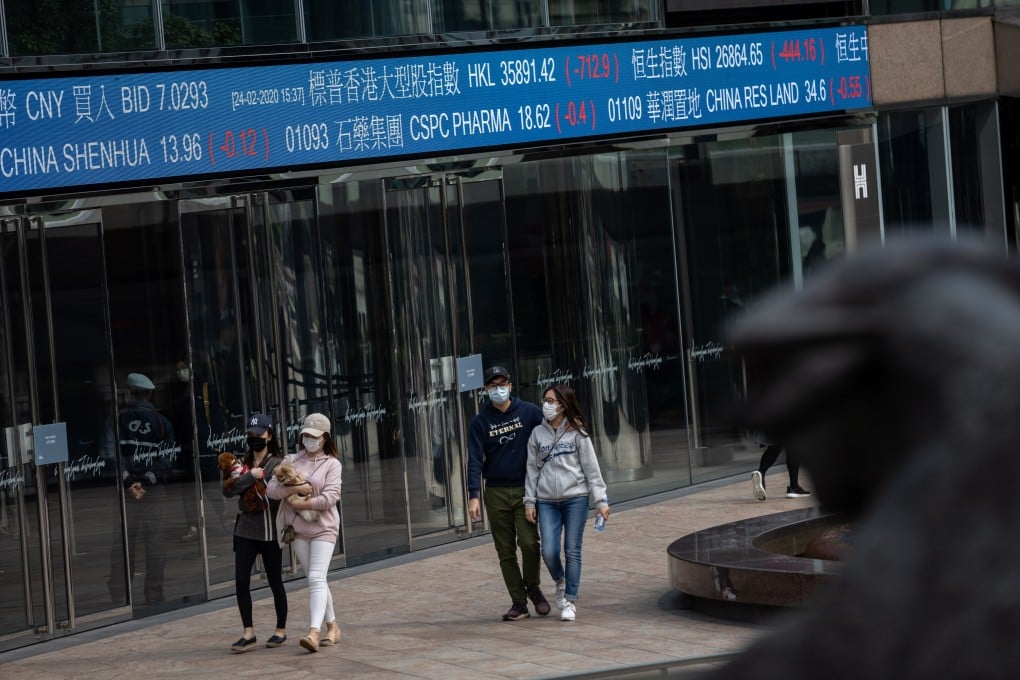Advertisement
Hang Seng Index marks best start to year since 2011 as banks and insurers rally while Xiaomi plunges
- Hong Kong markets completed a third week of gains, lifting the benchmark index to highest level before the Wuhan lockdown a year ago
- Xiaomi crashed by a record 10 per cent on US sanctions, while insurer AIA Group and Chinese bank stocks pushed the market to its best opening two weeks of year since 2011
Reading Time:3 minutes
Why you can trust SCMP

Xiaomi Corp crashed by a record 10 per cent on Friday trading as investors dumped the Chinese smartphone maker after a new round of US sanctions. Major Chinese bank stocks advanced while insurer AIA Group surged to an all-time high, keeping the benchmark index near a one-year high.
The Hang Seng Index rose 0.3 per cent at 28,573.86 for a 2.5 per cent gain from a week ago as the market capped its best start to a year in a decade. The Shanghai Composite Index erased a 0.5 per cent loss to end little changed at 3,566.38.
Xiaomi earlier plunged to an intraday low of HK$28.25 before closing at HK$29.30 or 10.3 per cent below Thursday’s closing. The slump wiped out HK$66.7 billion (US$8.6 billion) of market value from the phone company. The stock carries a 3.5 per cent weight, making it the ninth largest constituent in the main index, and has the fifth-largest 4.5 per cent weight in the local Composite Index.
Advertisement
Xiaomi surged 208 per cent in 2020 as the company’s phone shipment catapulted it into the top three globally after Apple and Samsung. US-based investors including BlackRock and Vanguard owned 15 per cent of its shares as of January 10, making them the third-largest group of investors by geography, according to Bloomberg data.
Still, the Hang Seng Index has now erased all of the losses since the Wuhan lockdown on January 23 last year. The index’s 4.93 per cent gain since December 31 is the most since a 5.4 per cent advance in the opening two weeks of 2011, according to Bloomberg data.
Advertisement
The US Defence Department added nine more firms on Thursday, Including Xiaomi and state-owned plane maker Commercial Aircraft Corp or Comac, to its list of companies that it says have ties with the Chinese military, rounding out the total to 44. The Commerce Department separately added oil explorer China National Offshore Oil Corp to an economic blacklist.
Advertisement
Select Voice
Select Speed
1.00x